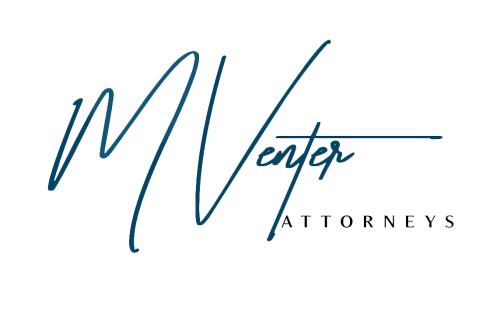Best Juvenile Law Lawyers in Vryheid
Share your needs with us, get contacted by law firms.
Free. Takes 2 min.
List of the best lawyers in Vryheid, South Africa
About Juvenile Law in Vryheid, South Africa
Juvenile Law in Vryheid, like the rest of South Africa, pertains to legal matters involving individuals who are under the age of 18. This field of law is primarily concerned with the rights, protection, and rehabilitation of minors. South Africa's legal system is designed to ensure that the welfare of minors is prioritized, and it adopts a rehabilitative approach rather than punitive for juvenile offenders. The Child Justice Act 75 of 2008 is central to this field, focusing on creating a criminal justice system for children that aligns with constitutional values.
Why You May Need a Lawyer
There are several situations where legal assistance might be necessary in the realm of Juvenile Law. Here are some common scenarios:
- Juvenile Delinquency: If a minor is accused of committing a crime, seeking legal representation is crucial to navigate the child's rights and possible outcomes effectively.
- Child Custody and Welfare: Legal issues arising from custody disputes, child abuse, or neglect may require legal intervention to ensure the child's interests are safeguarded.
- Adoption Processes: Legal advice is often needed for navigating the complex procedures involved in adopting a child.
- Guardianship Changes: Changing guardianship arrangements often involves legal processes that ensure the new arrangements serve the child's best interests.
- School and Education Rights: Disputes related to education, discipline, or discrimination at school might require legal counsel.
Local Laws Overview
Understanding the key local laws in Vryheid relevant to Juvenile Law is essential. Here are some critical elements:
- Child Justice Act (2008): This law establishes a separate criminal justice system for children, emphasizing rehabilitation and reintegration.
- Children's Act (2005): It deals extensively with the rights of children, including issues of parental responsibilities, adoption, and protective care.
- Mandatory Reporting: There are strict regulations around the reporting of child abuse or neglect by professionals and the general public.
- School Attendance: Laws mandate compulsory education for children and outline the responsibilities of parents and guardians.
- Age of Criminal Capacity: In South Africa, children under the age of 10 cannot be held criminally responsible, and those between 10 and 14 are presumed not to have criminal capacity unless proven otherwise.
Frequently Asked Questions
What age is considered a juvenile in Vryheid, South Africa?
A juvenile is anyone under the age of 18.
What happens if a juvenile commits a crime?
The case is handled within the framework of the Child Justice Act of 2008, prioritizing rehabilitation over punishment.
Can a juvenile be charged as an adult?
In exceptional cases involving serious offenses, juveniles might be tried as adults, though this is rare and highly regulated.
Are parents held liable for their child's crimes?
Parents might not be criminally liable but can face consequences for neglecting parental responsibilities.
What protections are in place during a juvenile arrest?
Juveniles have specific rights, including the presence of a guardian during questioning, and they must be held separately from adult offenders.
How is guardianship decided if a parent is found unfit?
The court decides based on the child’s best interests, often involving social workers and family members.
What are the consequences for failing to report child abuse?
It's a legal obligation, and failure to report can lead to criminal charges.
How does the law protect juvenile privacy?
Juvenile proceedings and records are confidential to protect the child’s future opportunities and privacy.
Can juveniles have legal representation?
Yes, juveniles are entitled to legal representation, and legal aid is often available for those who cannot afford it.
How does juvenile court differ from adult court?
Juvenile courts focus more on rehabilitation and have a different set of procedures and principles to cater to minors.
Additional Resources
For those seeking further information or assistance in Juvenile Law in Vryheid, the following resources may be valuable:
- Legal Aid South Africa: Offers legal assistance for those who cannot afford it, including services for juveniles.
- Department of Social Development: Provides support services including those related to child welfare and protection.
- South African Human Rights Commission: Can help in cases of children's rights violations.
- Childline South Africa: Offers support and counseling for children in distress, including legal referrals.
- Local Family Court: A primary institution handling family and juvenile cases, providing necessary guidance and hearings.
Next Steps
If you need legal assistance in the field of Juvenile Law, consider taking the following steps:
- Gather relevant documents and details about the issue at hand to provide a lawyer with a comprehensive view of the situation.
- Contact a qualified lawyer specializing in Juvenile Law to explore your options and obligations.
- Consider reaching out to local legal aid organizations if there are concerns about affordability.
- It might be helpful to consult with social workers or counselors who can provide additional support and guidance, particularly in cases involving emotional distress.
- Prepare questions to ask your lawyer to clarify any aspects of the law or processes you do not understand.
Lawzana helps you find the best lawyers and law firms in Vryheid through a curated and pre-screened list of qualified legal professionals. Our platform offers rankings and detailed profiles of attorneys and law firms, allowing you to compare based on practice areas, including Juvenile Law, experience, and client feedback.
Each profile includes a description of the firm's areas of practice, client reviews, team members and partners, year of establishment, spoken languages, office locations, contact information, social media presence, and any published articles or resources. Most firms on our platform speak English and are experienced in both local and international legal matters.
Get a quote from top-rated law firms in Vryheid, South Africa — quickly, securely, and without unnecessary hassle.
Disclaimer:
The information provided on this page is for general informational purposes only and does not constitute legal advice. While we strive to ensure the accuracy and relevance of the content, legal information may change over time, and interpretations of the law can vary. You should always consult with a qualified legal professional for advice specific to your situation.
We disclaim all liability for actions taken or not taken based on the content of this page. If you believe any information is incorrect or outdated, please contact us, and we will review and update it where appropriate.









